Global Debt

What are the consequences of not addressing climate debt ?
Addressing climate debt is crucial to mitigate environmental degradation, social injustices, and economic instability. Failure to do so exacerbates global warming effects like loss of biodiversity, sea level rise, and extreme weather events. It also leads to inequality, health issues, food insecurity, economic downturn, investment risks, and job losses. Recognizing and addressing climate debt is essential for achieving global sustainability goals and ensuring peace and justice worldwide.
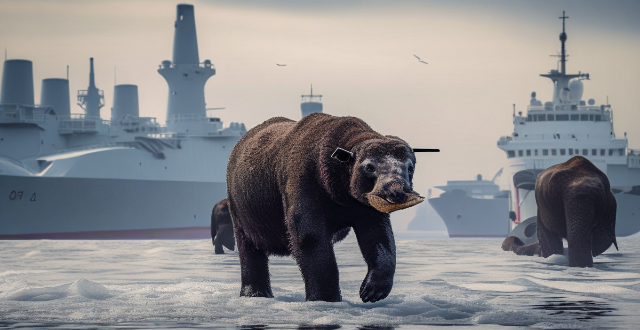
Can developed countries compensate for their climate debt ?
Developed countries have a moral and ethical duty to compensate for their climate debt by acknowledging historical responsibility, providing financial and technical support, and enacting policies that reduce emissions. This is crucial in addressing global inequities and mitigating the impacts of climate change. However, challenges such as quantifying climate debt and political will make compensation complex. International cooperation and agreements are necessary for effective action.

What is climate debt ?
Climate debt is a concept that suggests wealthy nations owe a moral and ecological debt to poorer countries due to their disproportionate contribution to global warming. The idea is based on the principle of "common but differentiated responsibilities," which recognizes that all countries have a responsibility to address climate change, but the extent of this responsibility should be based on historical contributions and capacity to take action. Key points include historical responsibility, capacity to mitigate, and vulnerability and adaptation. Wealthy nations have been industrializing for longer and have more resources to invest in renewable energy, while poorer countries often lack the financial and institutional capacity to adapt to the impacts of climate change. Addressing climate debt is seen as an essential component of any equitable and effective response to the urgent challenge of climate change.

How does climate debt affect developing countries ?
The concept of climate debt acknowledges the unequal impact of climate change on developing countries, which have contributed less to the problem but suffer more from its effects. This includes economic losses, social challenges such as health concerns and food insecurity, environmental threats like biodiversity loss and water scarcity, and political and legal issues including migration and international agreements. To address these challenges, initiatives like financial transfers, technology sharing, capacity building, debt forgiveness, and just transition policies are being implemented. Recognizing and supporting the needs of developing nations is crucial for achieving a more equitable and sustainable global future.

How can financial education help prevent debt ?
Financial education is crucial in preventing debt by empowering individuals with the knowledge and skills to make informed financial decisions. It covers understanding personal finance, smart borrowing practices, avoiding common pitfalls, and promoting healthy financial habits. By learning budgeting, saving, investing, credit score management, loan shopping, debt consolidation, and avoiding overspending, predatory lending, and credit card traps, individuals can reduce their risk of accumulating debt and enjoy greater financial stability and independence.

What role do individuals play in addressing climate debt ?
The text discusses the concept of climate debt and the role individuals can play in addressing it. The author outlines six key areas where individuals can make a difference, including understanding the concept of climate debt, reducing personal carbon footprint, supporting sustainable practices, advocating for change, embracing a sustainable lifestyle, and educating future generations about the importance of environmental stewardship. Each section provides specific actions that individuals can take to contribute to reducing climate debt and mitigating the effects of climate change.

How do I manage debt effectively and pay it off quickly ?
Managing debt effectively and paying it off quickly requires a combination of discipline, strategy, and sometimes professional advice. Here are some steps you can take to get started: ### Assess Your Debt Situation - **Understand Your Debts**: List all your debts and identify high-interest debts. - **Determine Your Budget**: Calculate your monthly income and evaluate your expenses. ### Create a Debt Repayment Plan - **Choose a Repayment Method**: Avalanche or Snowball method. - **Make a Budget and Stick to It**: Allocate more funds to debt repayment and adjust as needed. - **Consider Refinancing Options**: Consolidate debts or negotiate with creditors. ### Implement Additional Strategies - **Increase Your Income**: Take on additional work or sell unwanted items. - **Reduce Your Expenses**: Cut out luxury spending and shop smarter. - **Improve Your Credit Score**: Pay on time and monitor your credit report. ### Seek Professional Advice if Needed - **Consult a Financial Advisor**: Personalized advice and debt management plans. - **Consider Debt Counseling**: Nonprofit credit counseling and beware of scams. Consistency and perseverance are key in paying off debt quickly.

What is the difference between credit management and debt collection ?
Credit management and debt collection are two distinct processes that involve handling financial transactions between a business and its customers. While both are crucial for maintaining a healthy cash flow, they serve different purposes and require different approaches. Credit management refers to the process of managing the risks associated with extending credit to customers, while debt collection involves recovering outstanding debts from customers who have failed to make payments as agreed upon. Both processes are essential for maintaining a healthy cash flow and ensuring the financial stability of a business.

Who is responsible for paying off the climate debt ?
The concept of "climate debt" refers to the cumulative emissions of greenhouse gases by developed countries, which have contributed significantly to global warming and its associated impacts. This debt implies a moral and ethical obligation on the part of these countries to take action to mitigate and adapt to climate change, as well as to support developing nations in doing the same. Key Points: - Historical Emissions: Developed countries are primarily responsible for climate change due to their long history of high GHG emissions. - Economic Capacity: Wealthier nations have greater financial resources to invest in climate solutions. - Technology and Innovation: Developed countries often lead in technological advancements that can help reduce emissions and build resilience. - International Agreements: Under the United Nations Framework Convention on Climate Change (UNFCCC), developed countries have committed to providing financial and technical support to developing countries. - Loss and Damage: Developing countries, especially those most vulnerable to climate impacts, require assistance from wealthier nations to cope with losses and damages. - Equity and Justice: Addressing the climate debt is a matter of intergenerational and international equity and justice.

What are some examples of successful climate debt repayment programs ?
Climate debt repayment programs aim to address the disproportionate impact of climate change on vulnerable communities and countries. Successful programs include the Green Climate Fund, Global Environment Facility, World Bank's Climate Investment Funds, and African Development Bank's Africa Adaptation Initiative. These programs provide financial support and resources for adaptation, mitigation, and sustainable development projects in developing countries. Key features include funding for biodiversity conservation, land degradation prevention, private sector involvement, and disaster risk reduction.

How do low-income countries manage their debt and avoid falling into a debt trap ?
文章讨论了低收入国家在管理债务方面面临的挑战,并提出了避免陷入债务陷阱的策略。这些策略包括:将债务管理作为经济政策的重点;多元化融资来源;与债权人协商优惠条件;建设机构能力;促进经济增长和发展。通过实施这些策略,低收入国家可以有效管理债务,实现可持续经济发展。

How can we ensure that climate debt is taken seriously by governments and corporations ?
Climate debt, a concept recognizing the cumulative GHG emissions primarily from industrialized nations and their impacts on vulnerable populations, calls for action. Strategies to ensure its serious consideration by governments and corporations include raising public awareness, implementing policy initiatives, utilizing financial mechanisms, enhancing international cooperation, promoting corporate responsibility, fostering innovation, ensuring accountability, and engaging in socially responsible actions. These efforts aim to create an environment where stakeholders actively work towards mitigating climate change's impacts.

What are the common mistakes people make when trying to achieve financial freedom ?
Achieving financial freedom is a goal for many, but it's not always easy. Along the way, people often make mistakes that can hinder their progress. Here are some of the most common errors: ## 1\. Not Having a Clear Plan One of the biggest mistakes people make is not having a clear plan for achieving financial freedom. Without a roadmap, it's easy to get sidetracked or lose motivation. * **Solution**: Create a detailed plan that outlines your goals, timeline, and strategies for achieving them. ## 2\. Spending Beyond Their Means Many people fall into the trap of spending more than they earn, which leads to debt and financial stress. * **Solution**: Live below your means by budgeting, tracking expenses, and cutting unnecessary costs. ## 3\. Not Investing in Their Future Failing to invest in long-term goals like retirement or building wealth can set people back years or even decades. * **Solution**: Start investing early and regularly, even if it's just a small amount each month. ## 4\. Ignoring Debt Repayment Carrying high-interest debt can be a major obstacle to achieving financial freedom. * **Solution**: Prioritize paying off high-interest debt as soon as possible. ## 5\. Lacking Diversification in Investments Putting all your eggs in one basket can be risky. Many people make the mistake of not diversifying their investments. * **Solution**: Spread your investments across different asset classes to reduce risk. ## 6\. Not Educating Themselves About Finance A lack of financial knowledge can lead to poor decision-making and missed opportunities. * **Solution**: Educate yourself about personal finance through books, courses, and other resources. ## 7\. Failing to Review and Adjust Financial Plans Life changes, and so should your financial plans. Many people forget to review and adjust their strategies over time. * **Solution**: Regularly review your financial situation and adjust your plans accordingly.
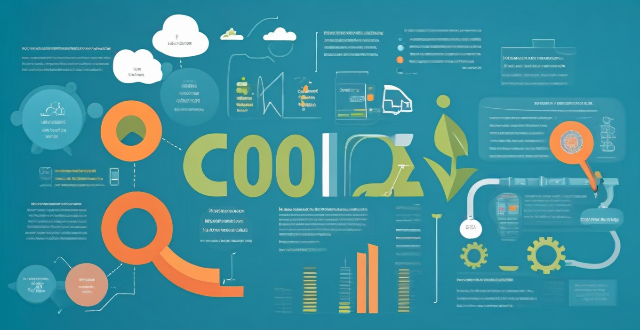
How can international cooperation on climate change contribute to global security ?
International cooperation on climate change is vital for global security. It helps mitigate environmental disasters, promotes economic stability and growth, enhances social cohesion and peace, facilitates technology and knowledge sharing, and strengthens global governance and diplomacy. Through joint efforts, nations can address one of the most pressing challenges of our time and secure a safer future for all.
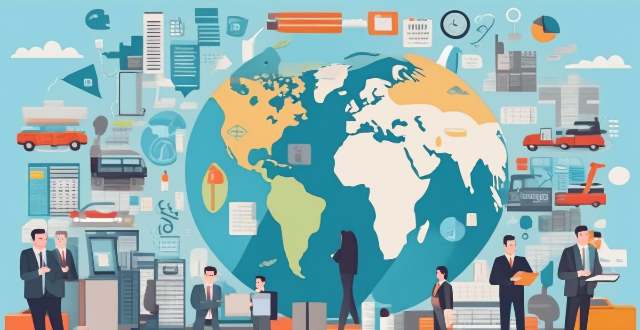
What are the latest trends in the global economy ?
The global economy is influenced by various interconnected factors including digital transformation, sustainability, global trade dynamics, monetary policies, and the rising influence of emerging markets. These trends are reshaping industries, fostering innovation, and influencing economic growth and policies worldwide.

What is the outlook for the European Union's economic recovery ?
The economic recovery of the European Union (EU) depends on political stability, global economic conditions, and domestic policies. Unity among member states and effective governance are crucial for managing crises and implementing growth-promoting policies. Global trade dynamics and supply chain disruptions also play a significant role. Domestically, fiscal stimulus, structural reforms, and a balanced green transition are key. The outlook is optimistic but uncertain, with many influencing factors.

What are some proven strategies for long-term wealth accumulation ?
Long-term wealth accumulation is a goal for many individuals, and there are several proven strategies that can help achieve this objective. Here are some of the most effective approaches: 1\. Start Early: The earlier you start saving and investing, the more time your money has to grow through compound interest. 2\. Live Below Your Means: Spend less than you earn and save the difference. 3\. Invest Wisely: Choose investments that align with your goals, risk tolerance, and time horizon. Diversify your portfolio to spread risk and maximize returns. 4\. Pay Off High-Interest Debt: High-interest debt like credit card balances can be a significant obstacle to wealth accumulation. Paying off these debts should be a priority. 5\. Increase Your Income: Increasing your income can provide more resources for saving and investing, which can help accelerate wealth accumulation. 6\. Plan for Retirement: Retirement planning is an essential component of long-term wealth accumulation, ensuring you have enough funds to support yourself during your golden years. 7\. Protect Your Wealth: Ensure that your hard-earned wealth is protected against unexpected events like lawsuits, accidents, or health issues.

How can we reduce our carbon footprint to minimize our contribution to climate debt ?
To minimize our contribution to climate debt, we canTo minimize our contribution to climate debt, we can several actions: using renewable energy we can reduce our carbon footprint through several actions: using renewable energy sources like solar and wind power; reducing energy consumption by unplugging unused appliances and optimizing home insulation; practicing sustainable transportation such as carpooling, using public transit, cycling, or walking; reducing waste and recycling by composting organic waste and reusing items; and supporting sustainable practices including buying local produce and choosing eco-friendly products. These conscious choices help us significantly lower our environmental impact and move towards a more sustainable future.

How does climate variability affect global weather patterns ?
The impact of climate variability on global weather patterns is substantial, affecting temperature, precipitation, wind patterns, and extreme weather events. Key influences include El Niño and La Niña phases, monsoon systems, altered rainfall distribution, jet stream variations, tropical cyclones, heatwaves, cold spells, storms, floods, and droughts. Long-term climate trends like global warming also significantly affect weather patterns. Understanding these interactions is crucial for predicting future conditions and addressing climate-related challenges.
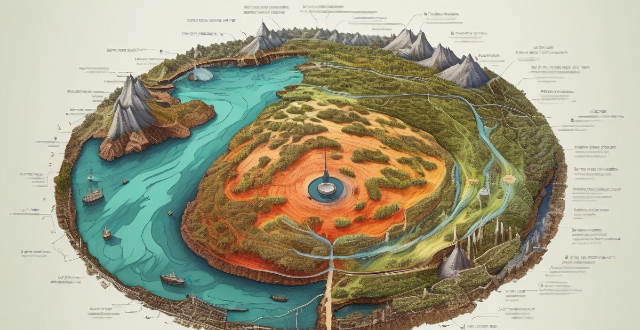
How do climate data analysis contribute to understanding global warming ?
Climate data analysis is essential for understanding global warming, its causes, effects, and potential solutions. Scientists collect temperature records, carbon dioxide concentrations, and sea level data to identify trends, establish correlations, and create predictive models. These efforts help develop effective strategies to mitigate the impacts of global warming.

What role does natural gas play in the global energy market ?
Natural gas is a key player in the global energy market due to its environmental advantages, economic benefits, contributions to energy security, technological advancements, and versatile applications across sectors.

How does global shopping contribute to economy ?
Global shopping, or cross-border e-commerce, has become a crucial aspect of the global economy. It involves buying and selling goods and services across national borders through online platforms. This phenomenon has not only revolutionized shopping but also significantly contributed to economic growth worldwide. Here are some ways global shopping boosts the global economy: 1. Increased consumer spending: Global shopping provides consumers with access to a wide range of products from around the world, leading to higher consumer spending, which is a key driver of economic growth. 2. Benefits for sellers: Businesses can reach new customers and expand their market share by tapping into international markets, increasing revenue and profitability. 3. Job creation and employment opportunities: The rise of global shopping has given birth to numerous jobs in various sectors such as logistics, customer service, marketing, and technology. 4. Boosting local economies: Local businesses can reach customers beyond their geographical boundaries by exporting their products globally, generating revenue that helps sustain their operations and contribute to the local economy. 5. Encouraging innovation and competition: The global marketplace created by cross-border e-commerce encourages businesses to innovate and improve their products to stay competitive, benefiting consumers by providing them with high-quality products at competitive prices. 6. Fostering international trade relations: Global shopping promotes cooperation between nations by facilitating trade agreements and reducing barriers to entry for businesses looking to expand internationally.
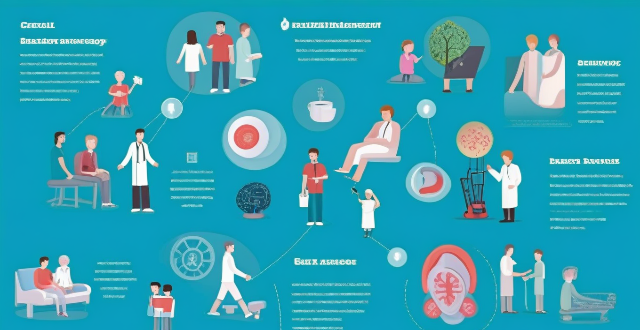
What is the role of technology in improving global health outcomes ?
Technology plays a crucial role in improving global health outcomes through advanced medical equipment, digital health solutions, and more. It has revolutionized diagnosis, treatment, disease surveillance, prevention, accessibility, affordability of healthcare services, research and development initiatives, and health literacy and education. Technology's impact on global health will continue to grow positively as it evolves at a rapid pace.
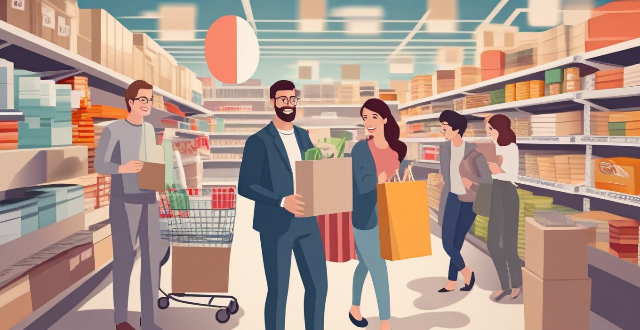
How does global shopping affect local businesses ?
Global shopping has become increasingly popular due to the rise of e-commerce platforms and international shipping services. While it offers consumers a wider range of products and competitive prices, it also poses challenges for local businesses such as increased market competition, job displacement, cultural homogenization, environmental impact, intellectual property rights issues, and economic dependency. As consumers continue to embrace global shopping, it is crucial for local businesses to adapt and find ways to differentiate themselves in order to remain competitive and sustainable in the long run.
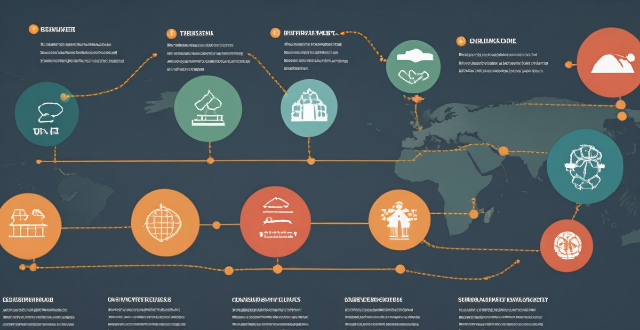
How does TCFD align with other global reporting initiatives like the Global Reporting Initiative (GRI) ?
The Task Force on Climate-related Financial Disclosures (TCFD) and the Global Reporting Initiative (GRI) are two global sustainability reporting frameworks that share several key points of alignment. Both provide guidelines for companies to report on their sustainability performance, with TCFD focusing specifically on climate-related financial disclosures and GRI covering a broader range of sustainability issues. They also emphasize the importance of materiality assessment, stakeholder engagement, risk management, and climate change disclosures in determining which aspects are most relevant to an organization's business model and strategy. By following both frameworks, companies can provide a more comprehensive picture of their sustainability performance and demonstrate their commitment to addressing climate change and other sustainability issues.

How do communication satellites improve global connectivity ?
Communication satellites play a crucial role in enhancing global connectivity by providing reliable and high-speed internet access to remote areas, facilitating international communication, and supporting various applications such as telemedicine, e-learning, and disaster management. They cover vast geographic areas, including mountainous regions, deserts, and oceans, where traditional infrastructure is not feasible or cost-effective. Satellite internet services can be deployed quickly, often within days or weeks, compared to months or years required for terrestrial networks. They enable seamless communication across national borders, fostering global cooperation and collaboration. Newer generations of low Earth orbit (LEO) satellites reduce latency by orbiting closer to Earth, improving the speed and quality of international communication. Satellites facilitate telemedicine by providing real-time video conferencing between patients and healthcare professionals located far apart. They enable e-learning by connecting students in remote areas with educational resources and teachers around the world. During natural disasters or crises, satellites provide critical communication channels for emergency response teams and affected communities.

What are the current global health challenges ?
The world is facing a multitude of health challenges that require immediate attention and action, including infectious diseases, non-communicable diseases, mental health issues, and environmental health hazards. Infectious diseases such as COVID-19, HIV/AIDS, tuberculosis, and malaria continue to be a major threat to global health. Non-communicable diseases like cardiovascular diseases, cancer, diabetes, and chronic respiratory diseases are becoming increasingly prevalent globally. Mental health disorders, including depression, anxiety disorders, and substance abuse, are a growing concern worldwide. Environmental factors such as air pollution, water pollution, climate change, and natural disasters also pose significant risks to human health.

Is global shopping more convenient than local shopping ?
Global shopping, also known as cross-border e-commerce, has become increasingly popular in recent years. It allows consumers to purchase products from different countries and have them delivered to their doorsteps. However, is it really more convenient than local shopping? This article explores the advantages and disadvantages of global shopping and concludes that whether it's more convenient depends on various factors such as product availability, pricing, delivery times, shipping costs, and customs duties. While global shopping offers a wider range of products and potentially lower prices, it also comes with longer delivery times, higher shipping costs, and potential additional charges like customs duties. Therefore, consumers should carefully consider these factors before deciding which option is most convenient for them.

Can global shopping help in finding unique and rare products ?
Global shopping allows consumers to access a wide range of unique and rare products from diverse markets around the world. By expanding your shopping horizons beyond your local market, you increase your chances of discovering unusual items directly from manufacturers and artisans at potentially lower costs. To find these one-of-a-kind products through global shopping, research potential countries or regions known for producing desired items, use specialized search engines and directories, follow social media influencers and bloggers, and attend international trade shows and expos. However, challenges such as longer shipping times, higher costs, quality assurance, and ethical considerations must be taken into account.
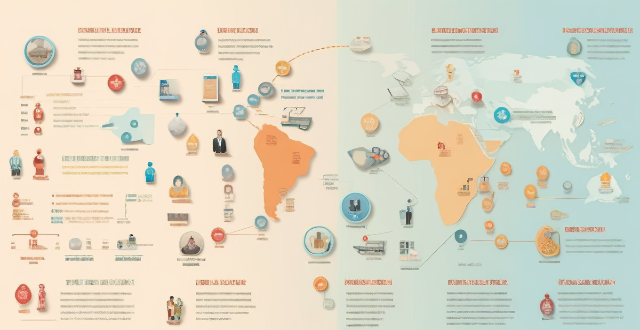
What challenges do countries face when working together on a global scale ?
Global collaboration faces political, economic, cultural, and logistical challenges. Politically, differing national interests, sovereignty concerns, and leadership dynamics can impede progress. Economically, fair resource allocation, trade agreements, and sanctions are contentious issues. Culturally, language barriers, diverse values, and educational gaps pose challenges. Logistically, coordination across time zones, travel restrictions, and technology disparities complicate matters. Addressing these challenges with open dialogue and cooperation is key to achieving shared global goals.